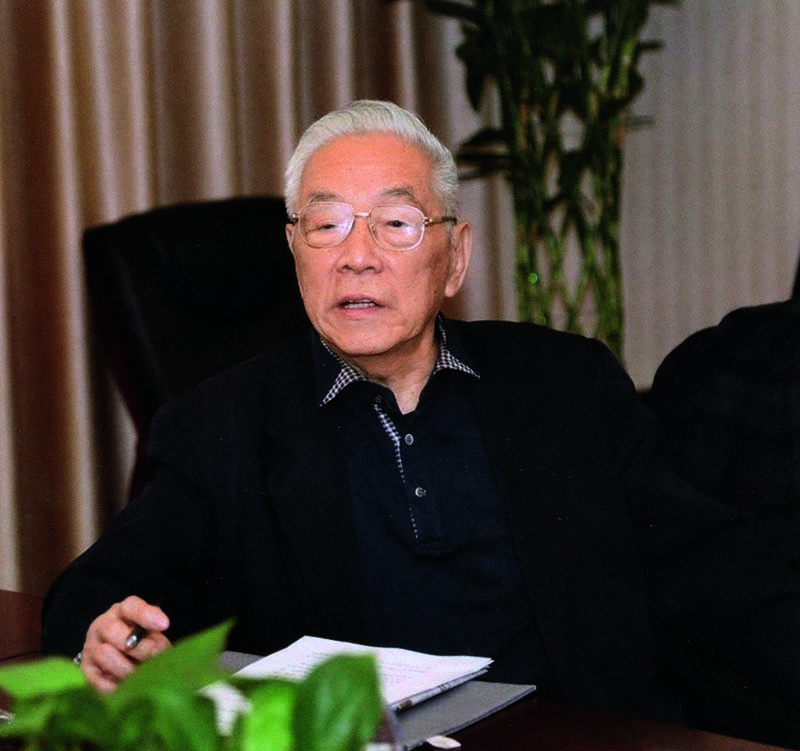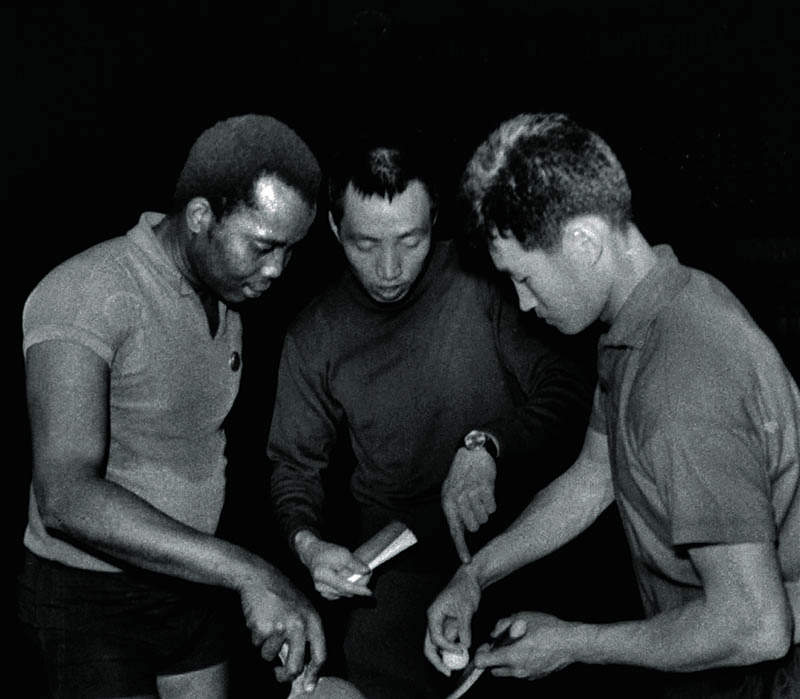Wang Yusheng:Friends Weren't Built in a Day

In April 1996, Wang Yusheng, a high-ranking official with the multilateral economic and trade organization Asia-Pacific Economic Cooperation (APEC), got a call from China’s Ministry of Foreign Affairs while in Anhui Province for an activity. He was told that President of Sri Lanka (called Ceylon before 1972) Chandrika Kumaratunga, who was making a state visit in China, wanted to meet him. Two days later, Wang rushed back to Beijing to meet her. He was even invited to visit the South Asian country as a personal friend of President Kumaratunga.

Wang Yusheng was among the first Chinese diplomats to work in Ceylon. In May 1957, Wang ventured to the South Asian country with then-Chinese Ambassador to Ceylon Zhang Canming soon after the two countries established diplomatic ties. By 1974, he had worked in Sri Lanka twice in different diplomatic positions. “I witnessed friendship between the two countries blossom during that period, based in part on my contributions,” Wang recalled emotionally.
The bond between Chinese diplomat Wang Yusheng and President Kumaratunga is an example of the positive influence of China’s Five Principles of Peaceful Coexistence in the international community, especially among developing countries, during the early years after the founding of the People’s Republic of China (PRC). “As soon as we stood on the soil of Ceylon, we were surrounded by friendship, therefore many things were easy to handle.” Even during the turbulent times in Sri Lanka, they could pass through checkpoints and even escape danger just because they were diplomats from China.
In Wang’s view, the Five Principles of Peaceful Coexistence conformed to the development of the international community and met the demands of the PRC at that time. He also noted that although the five principles were introduced as a basic foundation for the diplomacy of the PRC, they continue to serve as a solid cornerstone to this day.
Wang served as a diplomat for half a century. He took positions in the Democratic People’s Republic of Korea (DPRK), the Republic of Korea, Ceylon, Kuwait, Nigeria and Colombia. Despite drastically different diplomatic situations in each country, Chinese diplomats like Wang won support and protection from governments of those countries across the board, which ensured they could perform diplomatic work smoothly. “Although the work often exhausted me to the point where I couldn’t eat or sleep well, I was always grateful for the chance to share in the fate of my motherland,” Wang asserted.
Nigeria has been developing fast since the 1960s, when petroleum was discovered in this country. It is now the largest economy in Africa. “My first experience as an ambassador was in Nigeria,” Wang recalled. “When I was sent to the African country with a population of over 100 million, I was anxious and knew I had a lot of work to do there.” During Wang’s tenure as Chinese ambassador to Nigeria, leaders of the two countries conducted frequent exchanges and both sides maintained amicable relations. Enterprises from China completed many infrastructure projects in Nigeria that helped boost the local economy.

A Nigerian table tennis player talking with Chinese players during a trip to China in the early 1970s. CFB
Later, Wang became Chinese ambassador to Colombia. He was greatly intrigued by the South American country known for flowers, coffee and cocaine. He made frequent contact with local people from all walks of life and promoted mutual understanding between the two countries. He established a profound friendship with then-Colombian Foreign Minister Noemí Sanín. A local magazine published a photo of them with the caption “Symbol of China-Colombia Friendship.” Just before Wang left that position in 1993, the President and Senate of Colombia awarded him a medal for his outstanding contributions to strengthening China-Colombia ties.
“Our work relies on China’s adherence to an independent foreign policy of peace,” remarked Wang. “And nothing can be achieved in a day.”

October 26, 1995: Chinese football player Li Bing (left) and a Colombian player face off in the midfield at a football game held in Beijing. by Zhang Yanhui/Xinhua
“The Most Handsome APEC Official”
From 1993 to 1998, Wang Yusheng was deeply involved in six APEC summits as a high-ranking official of the mechanism. Wang regards APEC as one of the most important multilateral organizations for regional cooperation. Its fundamental purpose is to promote cooperation and development by liberalizing and facilitating trade and investment. He believes China has played an active role in strengthening the cooperative spirit in the big APEC family over the past 28 years since it joined the organization. Meanwhile, China adheres to the principles of pragmatism and mutual benefit, which have consistently driven the liberalization of trade and investment under the framework of APEC.
In 1993, on the eve of the first informal meeting of APEC leaders, Chinese leader Deng Xiaoping pointed out that global peace and development were facing new and severe challenges. Deng pointedly raised the question, “What kind of world should we bring to the 21st century?” Wang argues that this showed Deng cared not only about the destiny of China, but also the future of the whole world and mankind.
“This was a magnificent banner of Chinese diplomacy leading the world into the 21st century, pushing forward the changes of the times and the shifts in the mosaic of power around the globe,” Wang commented. “Since the turn of the century, Chinese leaders have called for building ‘a world of harmony’ and ‘a new type of major-country relationship’ and advocated peaceful development and win-win cooperation, which aligns with China’s steadfast pursuit of peace and development as much as it does with the needs of the times and China’s responsibilities.”
Surprisingly, Wang considers the day he resigned from APEC in 1998 the best. It was shortly after the Asian financial crisis. Representatives from many APEC members had gathered in Malaysia for a banquet, during which the host suddenly raised a question that required an immediate answer: “Who’s the most handsome APEC official?” “Wang Yusheng!” the crowd replied with applause. Wang’s tone shifted when recalling the moment: “I don’t think ‘handsome’ was about my appearance. It was a manifestation of their good feelings about China’s diplomacy and the image of the country. That was my happiest night at APEC.”

September 1, 2011: A railway bridge in Nigeria. The Nigerian railway modernization project was taken on by the China Civil Engineering Construction Corporation, making it a symbol of friendship between China and Africa. CFB
Wang Yusheng was born in 1929. He graduated from Beijing Foreign Studies University and joined China’s Ministry of Foreign Affairs in 1954. He consecutively served as director of the Information Department, Ambassador to Nigeria (1985-1988), Ambassador to Colombia (1988-1993) and a senior official at APEC (1993-1998). He authored Unforgettable Days as a Diplomat: Love for Diplomacy and Observation and APEC and the Changes of the Era: A Participator.